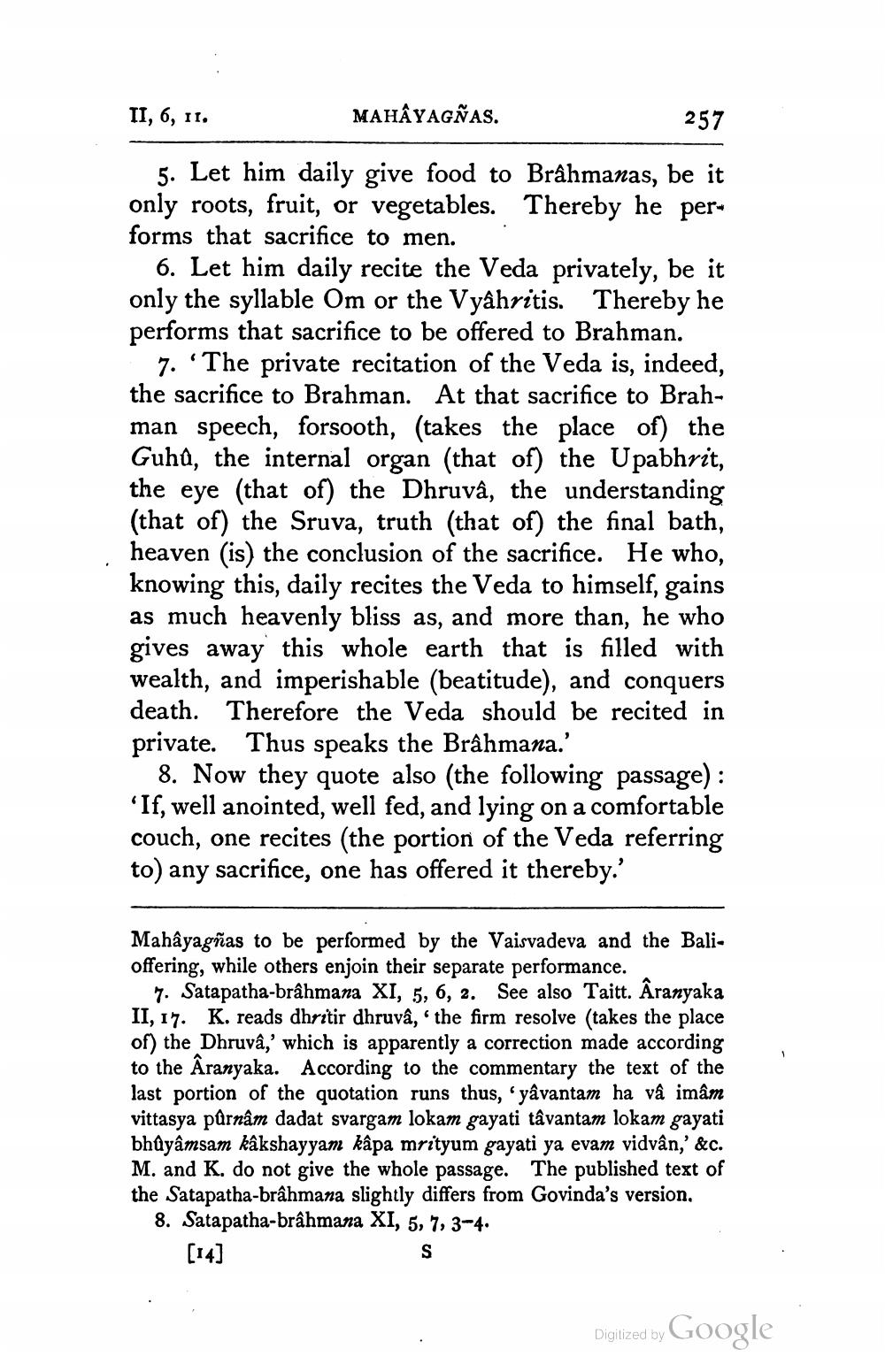________________
II, 6, 11,
MAHAYAGÑAS.
257
5. Let him daily give food to Brâhmanas, be it only roots, fruit, or vegetables. Thereby he performs that sacrifice to men.
6. Let him daily recite the Veda privately, be it only the syllable Om or the Vyâhritis. Thereby he performs that sacrifice to be offered to Brahman.
7. The private recitation of the Veda is, indeed, the sacrifice to Brahman. At that sacrifice to Brahman speech, forsooth, (takes the place of) the Guhû, the internal organ (that of) the Upabhrit, the eye (that of) the Dhruva, the understanding (that of) the Sruva, truth (that of) the final bath, heaven (is) the conclusion of the sacrifice. He who, knowing this, daily recites the Veda to himself, gains as much heavenly bliss as, and more than, he who gives away this whole earth that is filled with wealth, and imperishable (beatitude), and conquers death. Therefore the Veda should be recited in private. Thus speaks the Brâhmana.'
8. Now they quote also (the following passage) : 'If, well anointed, well fed, and lying on a comfortable couch, one recites (the portion of the Veda referring to) any sacrifice, one has offered it thereby.'
Mahayagñas to be performed by the Vaisvadeva and the Balioffering, while others enjoin their separate performance.
7. Satapatha-brâhmana XI, 5, 6, 2. See also Taitt. Aranyaka II, 17. K. reads dhritir dhruvâ, the firm resolve takes the place of) the Dhruva,' which is apparently a correction made according to the Aranyaka. According to the commentary the text of the last portion of the quotation runs thus, yâvantam ha vâ imâm vittasya půrnam dadat svargam lokam gayati tâvantam lokam gayati bhûyâmsam kâkshayyam kâpa mrityum gayati ya evam vidvân,' &c. M. and K. do not give the whole passage. The published text of the Satapatha-brâhmana slightly differs from Govinda's version.
8. Satapatha-brâhmana XI, 5, 7, 3-4.
Digitized by Google




